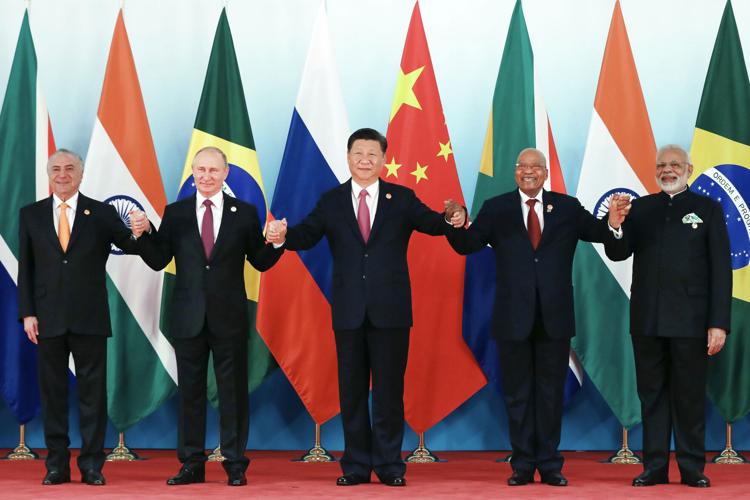Imagine you are Vladimir Putin, facing international isolation after invading Ukraine. With sanctions targeting your economy and an arrest warrant issued from the International Criminal Court, how do you demonstrate that the pressure is ineffective? By hosting a summit.
This week, President Putin will welcome over 20 heads of state to the Brics summit in Kazan, Russia. Notable attendees include China’s Xi Jinping, Indian Prime Minister Narendra Modi, and Iranian President Masoud Pezeshkian. The Kremlin has touted this as one of the “largest-scale foreign policy events ever” held in Russia.
Chris Weafer, founding partner of Macro-Advisory, notes, “The clear message is that attempts to isolate Russia have failed. It’s a part of the Kremlin’s narrative that Russia is weathering sanctions. Although there are serious underlying issues, at a geopolitical level, Russia appears to have a large network of allies.”
So who are these allies? The Brics coalition includes Brazil, Russia, India, China, and South Africa, positioning itself as a counterbalance to Western influence. Recently, the group has expanded to incorporate Egypt, Ethiopia, Iran, and the United Arab Emirates, with Saudi Arabia also being invited to join.
With combined economies valued at over $28.5 trillion (£22 trillion), the Brics nations represent approximately 28% of the global economy and account for 45% of the world’s population. Russian officials indicate that 30 additional countries are seeking to join or strengthen ties with Brics, suggesting a focus on the “global majority” during the summit discussions in Kazan.
However, the event’s actual achievements remain uncertain. Putin is likely to advocate for an alternative to the U.S. dollar for international payments as a way to mitigate the impact of Western sanctions. According to Weafer, “Many of Russia’s economic challenges stem from cross-border trade and payments heavily linked to the U.S. dollar.”
With the U.S. Treasury holding significant sway over global trade due to the dollar’s dominance, Russia is keen to establish a new trade mechanism involving Brics nations that doesn’t rely on the dollar, euro, or any G7 currencies, thereby diminishing the effects of sanctions.
Critics, however, highlight the disparities among Brics members. Jim O’Neill, former Chief Economist at Goldman Sachs, points out the lack of alignment, noting, “In some ways, it’s good for the West that China and India often fail to agree. If they did, Brics could wield substantial influence.”
Despite O’Neill’s initial vision for “Bric” as a group of four emerging economies central to global policymaking, the coalition’s direction has become complex. While seeking to challenge the G7’s dominance, internal tensions exist, such as between Egypt and Ethiopia, and historically between Iran and Saudi Arabia.
O’Neill suggests it’s unrealistic to expect a significant consensus among the members of Brics. Amidst Russia’s ambitions to create a new world order fueled by anti-Western sentiment, other nations like India are eager to maintain relations with the West.
At the summit in Kazan, Putin’s challenge will be to gloss over these differences and project an image of unity, demonstrating to both the Russian public and the international community that his country is far from isolated.
Credit: BBC News




